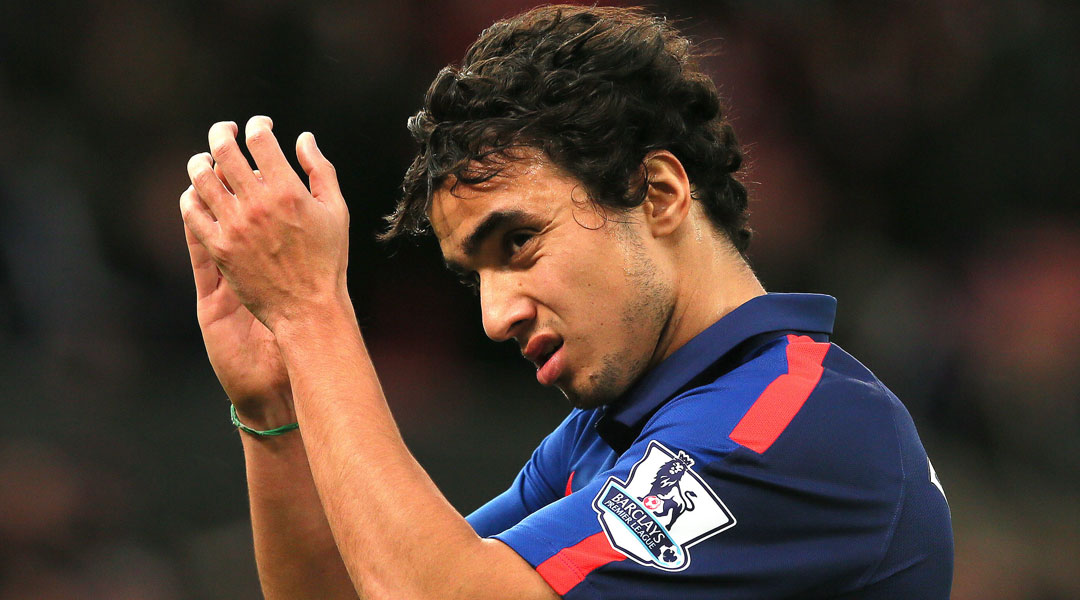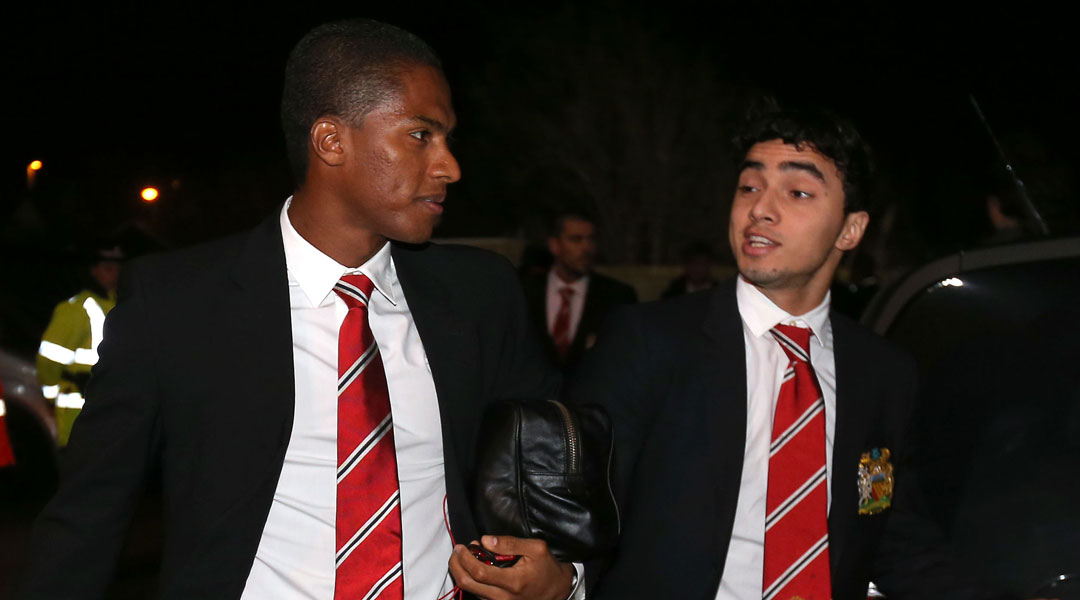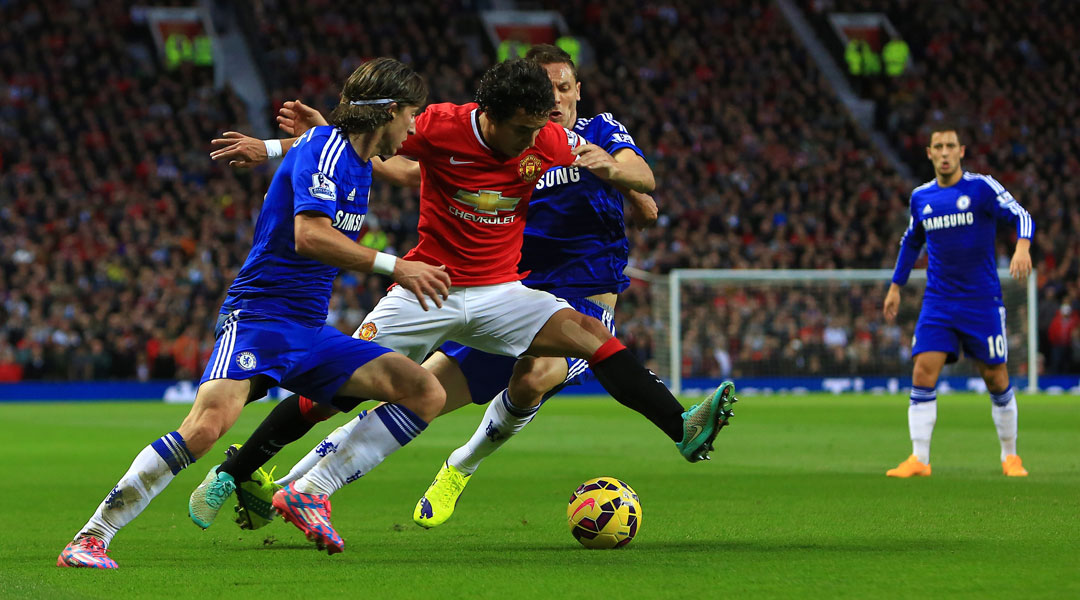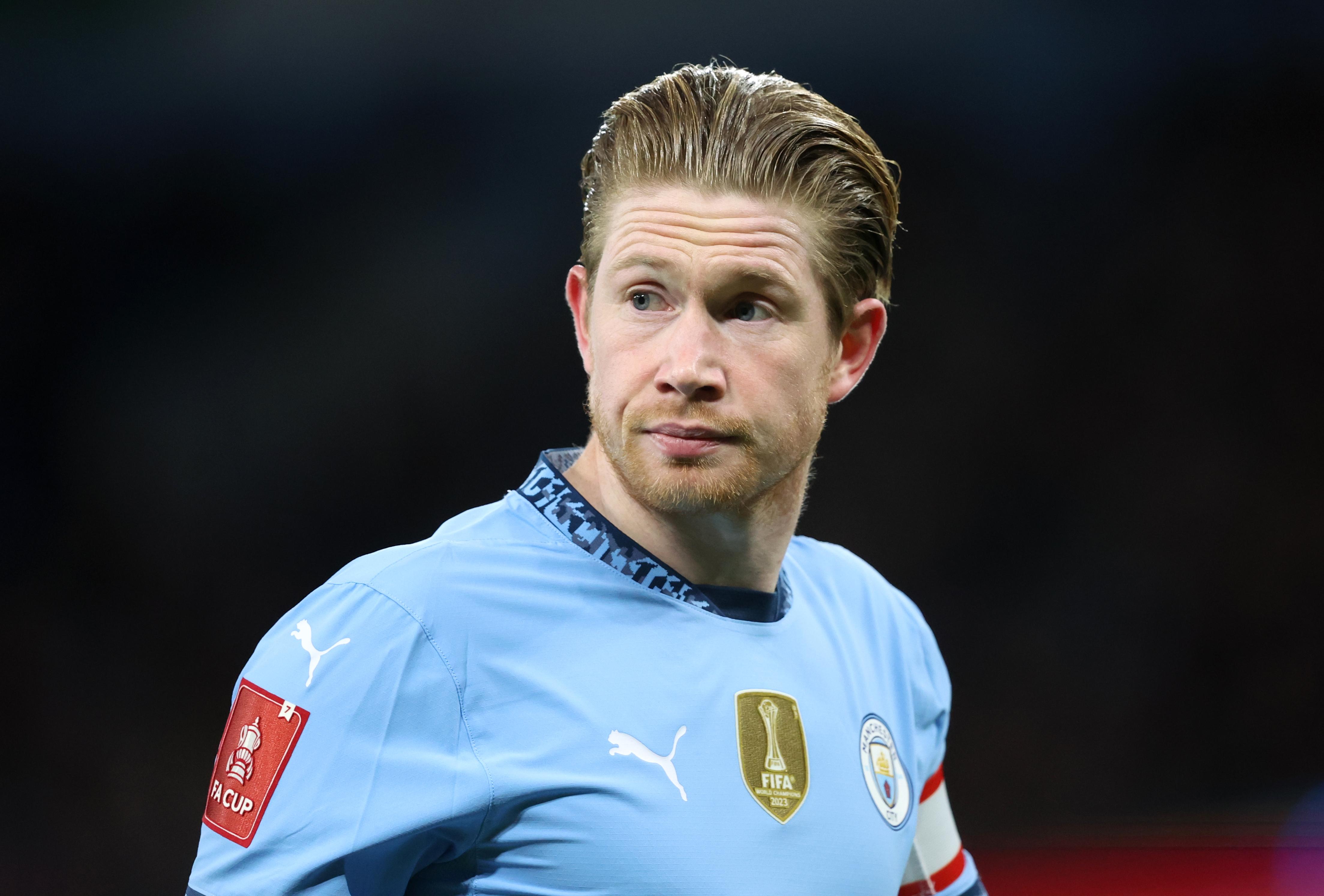What's happened to Rafael at Manchester United?
A fractured cheekbone has sidelined the Brazilian for most of 2015, but the next three months will be crucial for his Old Trafford future says Alex Hess...

Much has been made of Louis van Gaal's team selections since the Dutchman took over at Manchester United. Angel Di Maria up front, Wayne Rooney in midfield, Chris Smalling on the pitch at all – the tactical curiosities presented by Van Gaal's first six months at Old Trafford have been many and varied.
But behind the high-profile storylines, there has been another which has garnered little attention: the gradual slide of Rafael da Silva into a bit-part player.
Rafael's inertia is a legitimate concern. While his rosy-cheeked appearance and impetuous playing style give the impression of a youngster learning the ropes, the harsher truth is that the full-back will be 25 this summer and, given his undeniable natural ability, should probably be a better-established footballer.
Back-seat Brazilian
Considering the club's only other right-back of note during Rafael's seven-year stint at Old Trafford has been Gary Neville, who retired in 2011, it's hard not to be underwhelmed with the Brazilian’s current state of semi-stagnation – especially given his shimmering early promise. After being whisked away from South America at 17, Rafael’s progress under Sir Alex Ferguson’s mentorship was swift and steady, as he averaged a healthy 23 appearances across each of his first four seasons in England.
His prominence rose during the Scot’s final year in charge, when Rafael nestled comfortably into the role of first-choice right-back, with 38 starts across all competitions for an exuberant title-winning side. Diminutive, tenacious and hard-running, the presumption that the club had found a worthy and natural successor to Neville seemed a safe one.
Yet that 2012/13 season, then seen as his breakthrough year, now represents a career high for Rafael – and an increasingly distant one at that. Since Ferguson’s departure the Brazilian has suffered a fortune akin to that of The Godfather's Fredo Corleone; shunted into a back seat while younger hopefuls – in this instance Phil Jones, Luke Shaw and Adnan Januzaj – leapfrog him into the positions of influence.
Get FourFourTwo Newsletter
The best features, fun and footballing quizzes, straight to your inbox every week.
If Fredo's fatal flaw was a lack of backbone then the same can’t be said for Rafael, whose keen taste for a fight is straight out of the Sonny Corleone playbook and has rightly endeared him to the Old Trafford faithful. But although his failure to kick on last season could be written off as a byproduct of United's all-encompassing Moyes-era stasis, then this season’s story has been slightly different.

Injuries have played their part in the disruption of Rafael’s campaign. Appearances in each of the under-21s' last two games suggest first-team football is nearing – though those outings have raised question marks of their own – but his omissions when fit have not eased the creeping feeling that the Brazilian’s Old Trafford future may have been placed in doubt rather than on hold.
At a glance, it’s tempting to see the newly-marginalised Rafael as little more than an unlucky victim of his club's comically top-heavy squad. But while the influx of glamourous summer signings may have prompted the recent reshuffle to 3-5-2, the right-wing-back slot has been largely manned by Antonio Valencia – neither glamourous nor a new signing. The Ecuadorian is a willing and diligent player, but also one whose footballing limitations would seem more fundamental than Rafael’s.
Rafael himself is hardly lacking in willingness or diligence, and can also boast the existence of two fully-functional feet and a natural acquaintance with such a role, neither of which his Ecuadorian team-mate can lay much of a claim to. The former's goal at Anfield two years ago, for instance – a left-footed curler from an acute angle – isn't something Valencia can be easily imagined replicating.
Given that the likes of Paddy McNair and Smalling have also been fielded in his position this term, and to largely underwhelming effect, Rafael’s existence on the squad’s periphery, should it continue, would represent a rather damning verdict on his manager’s part.
Keeping cool
Van Gaal may well argue that Rafael's true position lies within a more conventional back four, while he prefers his current wing-backs to emphasise their attacking duties. It would explain why Valencia and Ashley Young have enjoyed regular outings there. Yet Rafael has never been found wanting in this regard – he’s averaged more crosses per game than Valencia this season – and is of an age whereby a gentle positional remoulding should be well within the bounds of plausibility.
Rafael’s tale of stagnation has been an odd one in that it appears to lack any singular cause. He has shown no obvious technical shortcomings, as could be said of, say, Smalling or Jones.
Nor have any whispers emerged of problems with attitude or application, as has been the case with Anderson and Ravel Morrison, to name but two.
If anything, Rafael is guilty of being too enthusiastic; too tenacious; too keen to impose his mark on the game and on the opposition. As footballing sins go, it’s hardly the gravest. Moreover, he is quick, athletic and adventurous: exactly the qualities required of the elite modern-day full-back.
Yet he appears in genuine danger of becoming permanently tasked with schmoozing nightclub owners in Las Vegas while the rest of the family take care of the real business over in New York.
Certainly, Rafael’s inclination to veer haphazardly into clouds of red mist has cost his side dearly on more than one occasion. Like Fredo fumbling clumsily with his revolver as his father is shot dead in the street, Rafael has shown a tendency to fluff his lines at crucial moments.

It happened most notably in the 2010 Champions League quarter-final with his sending off against Bayern Munich, a momentum-ceding misdeed for which he was promptly dropped from the side.
The penalty he conceded in September’s frenetic 5-3 loss at Leicester – a needless challenge in response to being outmuscled seconds earlier – is evidence that those old failings remain. During his outing against Everton’s under-21s on Tuesday night, a needless two-footed lunge at around the hour mark was met – leniently – with a yellow card before he was swiftly taken off for his own good.
At the age of 19, as he was against Bayern, such behaviour can be largely written off as a natural byproduct of youthful overzealousness. At 24, however, it looks like an inability to behave sensibly.
If much of the above serves to accentuate the negatives of Rafael’s situation, then it should be stressed that things are hardly at crisis point. Nonetheless, the season’s final three months could prove pivotal.
Van Gaal is insistent that his sidelined squad members prove their fitness over a two-week period before the first-team beckons, and the Brazilian’s run-outs for the under-21s would seem to now set him in contention. The coming weeks should provide the firmest evidence yet of where he lies in Van Gaal’s reckoning.
Rafael needn’t look far to see how a bud bursting with youthful potential doesn’t always blossom resplendently. When Fabio da Silva, now of Cardiff City, boarded that flight from Rio with his brother in 2008, it’s a fair bet that league trips to Rotherham and Brentford were not central to his aspirations. For Rafael, though, the opportunity at the top level still knocks.
“Everybody’s got their own tale of sorrow,” said Vito Corleone, who knew a thing or two about making your chance count. Rafael will hoping his Old Trafford career does not end up giving credence to the theory.
